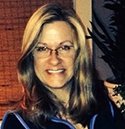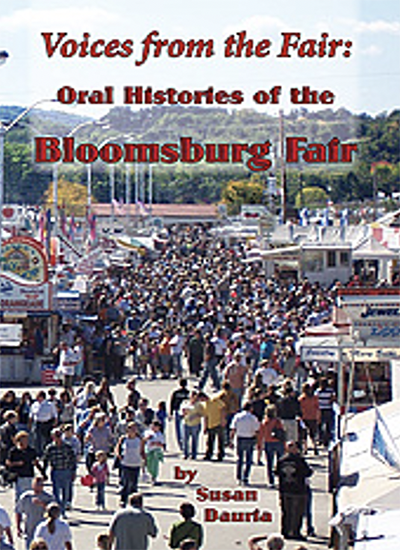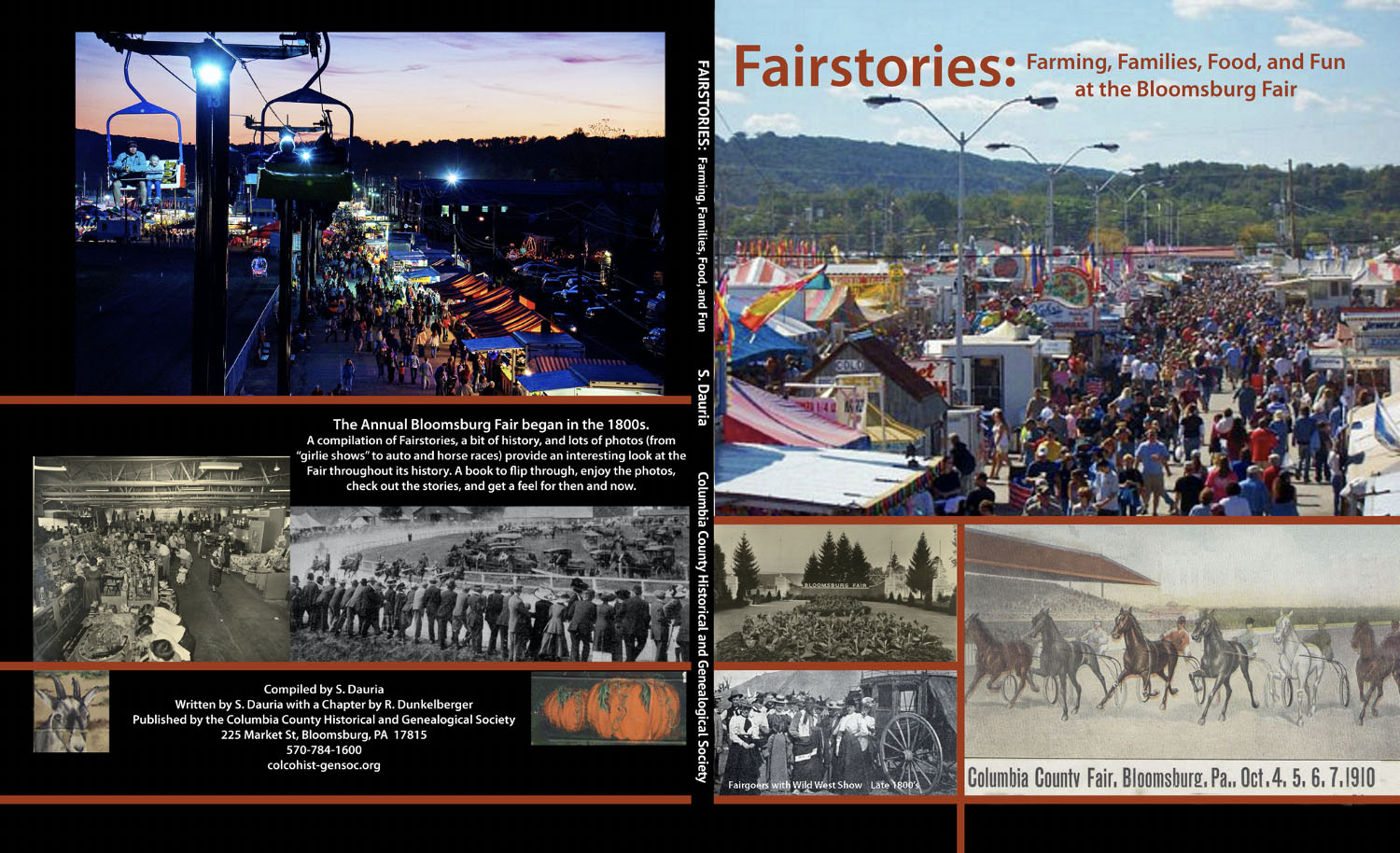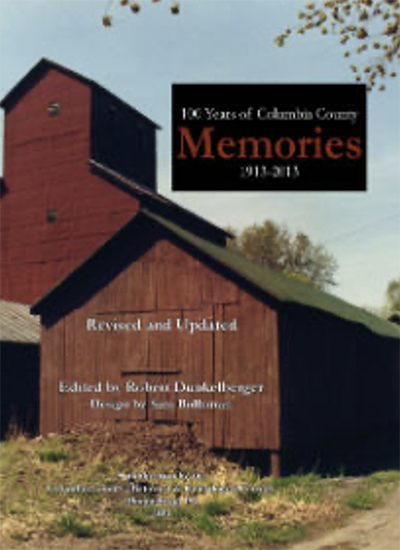Susan Dauria, Ph.D.

- Title(s)
- Professor
- Department
- Education
Ph.D. State University of New York at Albany
M.A. State University of New York at Albany
B.A. State University of New York at Geneseo
- Contact Information
-
- 570-389-4952
- Send an Email
- Center for Community Research and Consulting
-
149 Centennial Hall
Why anthropology?
"I learned about anthropology for the first time as a freshman in college. My professor in introduction to anthropology encouraged me to write about my experience with the U.S. Army from a cultural perspective. Over the next four years I searched for a major and continued taking anthropology courses. I finally decided to take anthropology as a second major because I enjoyed the courses so much.
At that time I didn't expect to have a career as an anthropologist. After graduation, I got a job in New York City as an international licensing coordinator for United Features Syndicate, Inc. My career as an anthropologist was born during a business trip to Thailand, where I spent a week at meetings in the Bangkok Hilton Hotel. After that week, I broke out of the corporate world of the Hilton and spent time backpacking around the countryside. It was that trip that put my life in focus: I decided that I didn't want to work in business, but I wanted to experience life and stay in touch with the unique culture of regular people.
Once I returned from that trip I submitted applications to graduate school. Three months later I was at the State University of New York at Albany where I spent the next five years. I originally thought I would become an archaeologist and began working in a mortuary archeology lab on skeletal samples from Michigan. I later decided that cultural anthropology was more to my liking since it allowed me to interact with living people. I ultimately wrote my dissertation on the effects of deindustrialization on ethnic identity in a post-industrial community in upstate New York. Today, I still work in that community, as well as in northeastern Pennsylvania."
Interests
Economic anthropology and the effects of deindustrialization on the construction of ethnic identity; Industrial and Organizational Culture, Child Socialization; Dance.
Ongoing Research Projects
Dr. Dauria annually organizes groups of students and faculty to collect oral histories and other data for a project entitled “Fair Stories.” The results have been incorporated into several manuscripts published by the Columbia County Historic Society and the Columbia County Agricultural Horticultural and Mechanical Association.
Using oral history and survey data collected over many years, she has mounted an ongoing investigation and commemoration of agricultural and industrial culture in Pennsylvania. One main research goal of the project is to determine the extent to which agricultural fairs serve as important touchstones for cultural identification.



Fair Research Publications:
Fairstories: Farming, Families, Food, and Fun at the Bloomsburg Fair - A compilation of Oral Histories collected over seven years. Published by the Columbia County Historical Society. Chapter contribution by Robert Dunkelberger.
Voices from the Fair: Oral Histories of the Bloomsburg Fair. Touchstone Publications and the Bloomsburg Fair Associations. ISBN(13): 978-0-970775-6-2.
“Bloomsburg Fair,” in 100 Years of Columbia County Memories 1913 to 2013. Edited by Robert Dunkelberger and Sam Bidleman, and Eric Sweeney. The Columbia County Historical Society. (support from the Columbia County Agricultural Association).
Consolidated Oral History Data Additions – Bloomsburg Fair Annual Report 2017
Bloomsburg Fair Annual Report -- Oral History and Observational Data 2016
Consolidated Data Report – Five-year review of the Bloomsburg Fair Activity: Results from 2006 to 2010 Quantitative Data and 2008 to 2013 Qualitative Data. A Bloomsburg Fair and Bloomsburg University Collaboration.
Bloomsburg Fair Activity: Results of 2010 Demographic Survey. (GIS by John Hintz) 2011.
Demographic Reporting of Fair Survey Data: 2009. Bloomsburg Fair Assoc. 2010.
Demographic Report of Attendance: Results from 2008 surveys. Bloomsburg Fair Assoc. 2009
Demographic Report of Fairgoer Activity: Results from 2007. Bloomsburg Fair Assoc. 2008
Fair Research Presentations:
2020 Ethnography and Oral Histories. Northeastern Anthropological Association Conference Monmouth University, West Long Branch, NJ. April 17-18.
2019 Fair Stories: Reflections on Family, Farms, Food and Freaks. 59th Annual Northeastern Anthropological Association Conference, Providence, Rhode Island, March 2.
2018 Nostalgia for Rural Lifeways as Expressed in Rural Fairs, 78th Annual Meeting of the Society for Applied Anthropology, Philadelphia, April 4.
2013 Local Anthropology in Pennsylvania: Studying the Harvest. 53rd Annual Northeastern Anthropological Association Conference, Bethesda, Maryland, March 1.
2012 Community Collaboration – The Impact of Anthropology with a Migrant Community. The Teaching Professor Conference, Washington DC. June 2-3.
2009 Liminal Space and Rural Rituals: A Celebration of Agriculture in Pennsylvania. 108th Annual American Anthropological Association Meeting. Philadelphia. Dec 3.
2009 Commemorating Small Town Industrial Labor. 49th Annual Northeastern Anthropological Association Conference. Providence, Rhode Island, March 13.
2008 Studying Exotic Culture at Home: Research at the Bloomsburg Fair. Invited lecture, Department of Sociology & Anthropology, Bucknell University, Lewisburg, September 18.
2007 Pedagogy into Practice, Fieldwork Experience for Students in Anthropology. 28th Ethnography and Education annual conference, University of Pennsylvania, Philadelphia, February 27.
2006 The Work of a Museum Exhibit on Work. (Amsterdam New York). The Northeastern Anthropological Association annual conference. Albany, New York. May 5.
2005 Work as a Museum Exhibit. 104th American Anthropological Association Annual Meeting. Washington, D.C. December 2.
Student-centered Anthropological Curriculum Development
Dr. Dauria has developed educational anthropology and archaeology experiences in collaboration with local communities. These have involved college students in the preparation, planning, and execution of archaeological and anthropological learning programs for children.
